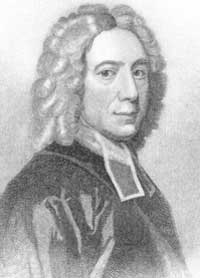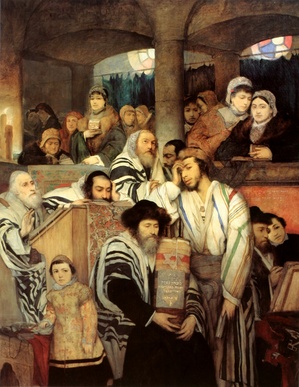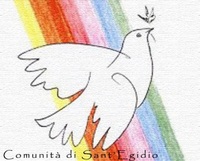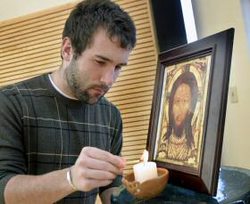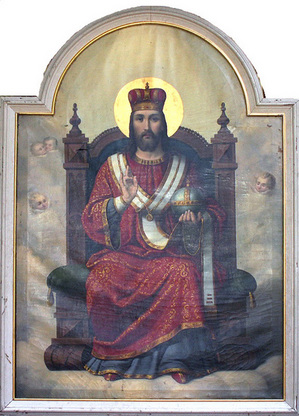Here is the description of the Fraternity of Communion and Liberation which appears in the Directory of International Associations of the Faithful, published by the Pontifical Council for the Laity (Libreria Editrice Vaticana [adapted], 2006).
Official name: Fraternity of Communion and Liberation; also known as: Communion and Liberation (CL)
Established: 1954
History: At the beginning of the 1950s, realizing the need to rebuild the Christian presence in the student world, Father Luigi Giussani, a professor at the Theological Faculty at Venegono, dedicated himself to teaching religion in schools.
The experience of a small group of students from the Berchet classical high school in Milan, which gathered around him, led to the establishment of Gioventù Studentesca (Student Youth). With the strong encouragement of the archbishop of Milan, Giovanni Battista Montini, the future Pope Paul VI, Gioventù Studentesca spread to other Italian cities, and after 1968 it also began to involve undergraduates and adults.
This led to the establishment of Communion and Liberation which, in 1980, was to be canonically recognized by the Benedictine Ordinary (Bishop) Abbot of Montecassino, Martino Matronola. The first fraternity groups were set up in the latter half of the 1970s by CL graduates who, using a method based on communion, wished to strengthen their membership in the Church as adults, along with the responsibilities that this entails.
It was through their spread to various countries that the Fraternity of Communion and Liberation came about. On Feb. 11, 1982, (Our Lady of Lourdes) the Pontifical Council for the Laity decreed recognition of the Fraternity of Communion and Liberation as an international association of the faithful of pontifical right.
Identity: The essence of the CL charism is
the proclamation that God became Man; in the affirmation that this man — Jesus of Nazareth, who died and rose again — is a present event,
whose visible sign is communion, that is to say, the unity of a people led by a living person, the Bishop of Rome
in the awareness that it is only in God made Man, and hence within the life of the Church, that man is more true and humanity is truly more human.
In the educational proposal made by CL, the free acceptance by the individual of the Christian message is determined by the discovery that the needs of the human heart are met by the annunciation of a message that fulfills them.
It is the reasonableness of the faith which leads men and women who have been transformed by their encounter with Christ to commit themselves with Christian experience to affect the whole of society. This commitment strengthens their awareness of their own identity, enabling them to see their life as a vocation, and is supported by the experience of communion which makes the memory of Christ’s coming a daily reality.
The educational process,
nurtured by proclamation and catechesis
by attendance at retreats and spiritual exercises
and by the celebration of the sacraments,
gives pride of place to the dimensions of
1. cultural work, as a means of deepening and expressing their faith and as a condition for having a responsible presence in society
2. charity work, as education in service to be freely given to others and social commitment
3. and the mission, as education in the sense of the catholicity of the Church and as a vocational choice.
Bearing witness to Christ
-
in schools and universities
-
in factories and offices
-
in the local neighborhood and in the city
-
takes place above all through work, which is the specific way in which adults relate to reality.
Organization: The life of the fraternity is lived through the free formation of groups of men and women of ail conditions and states of life, whose friendship and communion are based upon their common commitment to move forward together toward holiness, which they acknowledge to be the genuine purpose of human existence.
The association is guided by the president and by the Central Diakonia, of which all the international leaders are members.
[There are also] the officials in all the various areas in which it is present, and representatives of the other entities that have emerged from the CL charism:
· the Memores Domini Lay Association (The life of its members (lay men and women who normally live in houses made up of either men or women, following a rule of group living and personal ascesis) is governed by the call to contemplation, understood as the constant memory of Christ, and of mission, especially in the workplace. The life is committed to the conception of virginity is based on St. Paul’s call to “possess as though not possessing.” It is not in order to give up something that one makes a sacrifice, but rather to possess reality completely analogous to the possession of Christ);
· the priestly Fraternity of the Missionaries of St. Charles Borromeo;
· the Congregation of the Sisters of Charity of the Assumption;
· Fraternity of Saint Joseph (dedicated their lives definitively to Christ and the Christian life, while remaining in their current life situations; members of this fraternity are free of marriage bonds, because widowed or unmarried, according to the Gospel tradition: in obedience, poverty, virginity, which are dimensions of faith, hope, and charity).
ln the dioceses, the diocesan leader is assisted by a
Diakonia and by a spiritual assistant appointed by the local bishop acting on a proposal by the fraternity president.
Since 1997, the Communion and Liberation International Center has been operating in Rome, as the liaison center linking all the parts of the movement worldwide.
Membership: The fraternity has 47,994 members in 64 countries. More than 60,000 people share the CL experience.
Works: Individuals and groups belonging to the fraternity have taken the responsibility to establish cultural, charitable and entrepreneurial works linked together in the Company of Works which has offices in Italy and abroad.
These works of CL include
· shelter homes for the mentally ill, drug addicts, the disabled, AIDS patients and the terminally ill
· companies to provide employment for the disabled
· nongovernmental organizations (AVSI in Italy and CESAl in Spain) to provide assistance and foster the development of poor countries
· foundations such as the Food Bank, which provides daily food to more than 1 million poor people in Italy,
· and the Pharmaceutical Bank
· solidarity centers to assist the unemployed in seeking a job
· welfare facilities in children’s prisons in Africa and America
· and aid for needy families and finding homes for people in difficulty.
The initiatives that have emerged in the field of culture have become a special place for ensuring that the pooling of different experiences is an opportunity for every individual to communicate their own “proprium” regarding the Christian event:
· cultural centers
· schools (often established by parents’ cooperatives)
· publishing houses, publishing and newspaper initiatives
· foundations and academic institutions
· and international conferences, such as the Meeting for Friendship among Peoples.(Rimini)
The Sacred Heart Foundation in Milan is directly dependent upon the Fraternity, as a nonprofit entity which manages schools, and works for the promotion and protection of free education, consistent with the Christian tradition and the teaching of the Church.
Publications: Traces Litterae Communionis, a monthly magazine in Italian, French, English, Polish, Portuguese/Brazilian, Russian, German and Spanish; Piccole Tracee, a magazine for children published every two months
Web site: www.clonline.net
 of Christ the King. Born in 1930 to parents serving in the military and stationed in the Philippines, he joined the community of the Abbey of Gethsemani on August 2, 1950.
of Christ the King. Born in 1930 to parents serving in the military and stationed in the Philippines, he joined the community of the Abbey of Gethsemani on August 2, 1950.
